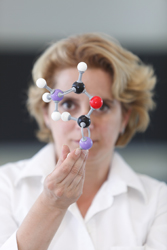Designer molecules
Metabolic engineering is the practice of optimising genetic and regulatory processes within cells to increase the cells' production of a certain substance. It is an applied science focusing on either developing new cell factories or improving existing ones. It uses advanced analytical tools to identify appropriate targets for genetic modifications and mathematical models to perform in silico design of optimised cell factories used in industrial biotechnology. With the focus on using mathematical models for design increasing in recent years, the EU-funded 'Systems biology as a driver for industrial biotechnology' (Sysinbio) project is now coordinating European efforts. Sysinbio's lead role in Europe's model-driven metabolic engineering activities has led to the creation of the BioMet ToolBox database. This contains metabolic models for different, industrially important micro-organisms and various simulation tools. Sysinbio is currently developing new and better mathematical models of metabolism that can be used for metabolic engineering. Activities on both stoichiometric (of reactants) models and kinetic (energy produced by motion) models have already been coordinated. So far, the project team has shown that coordination of the development of more reliable and standardised microbial models has enhanced model predictions. This has enabled the application of simulation and optimisation algorithms that can identify gene modifications that can increase the production yields of target compounds. Another important part of Sysinbio has been the coordination of education and training in the field of metabolic engineering in Europe. This has resulted in support for students participating at key conferences and the organisation of various dedicated courses on systems biology. The project results are expected to have a significant long-term impact on improving the competiveness of European industrial biotechnology. Benefits will include improved dialogue between academia and industry, better training for researchers, and the provision of enhanced standards and methods for use in industrial biotechnology.







